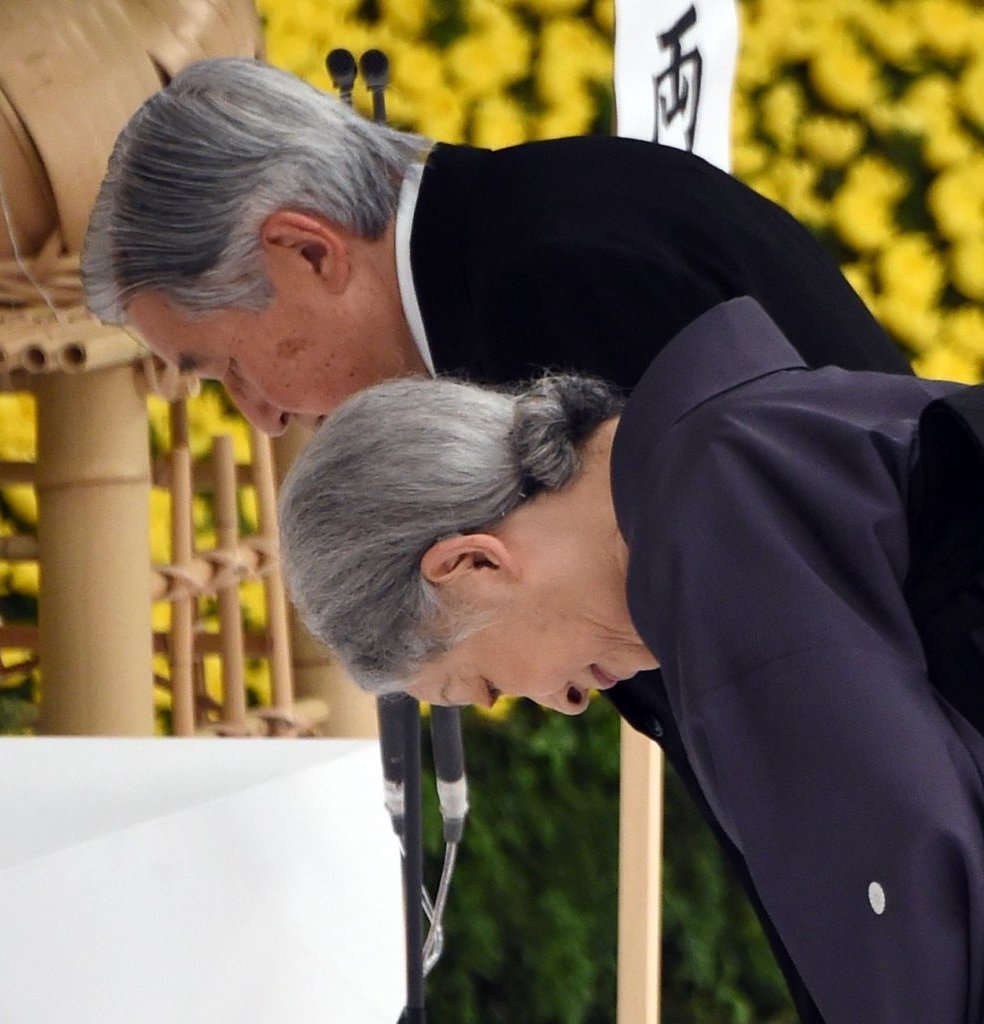Japanese emperor’s ‘deep remorse’ over WWII seen as rebuke for Abe
Japanese Emperor Akihito has expressed “deep remorse” over events in World War II on the 70th anniversary of the end of the conflict. He said: “Looking back at the past, together with deep remorse over the war, I pray that this tragedy of war will not be repeated and together with the people, express my deep condolences for those who fell in battle and in the ravages of war, and pray for world peace and the further prosperity of our country.” The comment was a departure from his annual script and could be viewed as a subtle rebuke of Prime Minister Shinzo Abe. Abe expressed “utmost grief” for the suffering Japan inflicted in the war, but said future generations should not have to keep apologising for past mistakes.
(We should) never forget that there were women behind the battlefields whose honour and dignity were severely injured.
Japan Prime Minister Shinzo Abe
The war still haunts relations between Japan and the likes of China and South Korea, which suffered under Tokyo’s sometimes brutal occupation and colonial rule until Japan was defeated in 1945. On Saturday, Mr Abe sent a ritual cash offering to Yasukuni Shrine for war dead but he did not visit the shrine, which is seen in China and South Korea as a symbol of Japan’s wartime militarism as it honours 14 Japanese leaders who were convicted as war criminals by an Allied tribunal. Mr Abe earlier made no direct reference to “comfort women”, a euphemism for the girls and women, many of whom were Korean, who were forced into prostitution in Japanese military brothels.

World Yasukuni